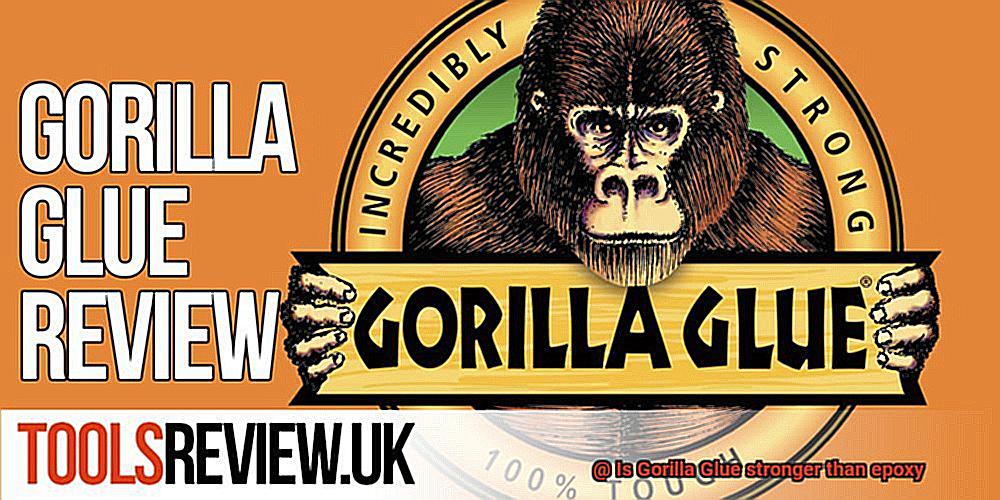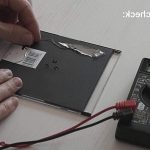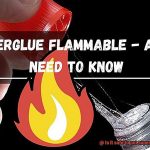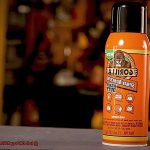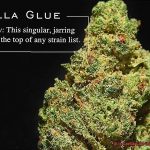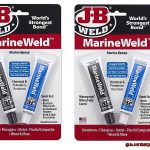Are you tired of dealing with weak glue that can’t stand up to tough conditions? Do you need an adhesive that’s as strong as a gorilla and versatile enough to bond almost anything? If so, you’ve likely heard of Gorilla Glue and Epoxy – two popular adhesives known for their strength. But the question remains – which one is stronger?
Gorilla Glue has gained a reputation for its waterproof properties, fast-drying time, and unbeatable bond strength. Meanwhile, Epoxy sets quickly, can withstand high temperatures, and excels at bonding hard plastics.
So, which adhesive reigns supreme? Is Gorilla Glue more powerful than Epoxy, or does the latter have the upper hand? In this blog post, we’ll dive deep into both adhesives’ properties, strengths, and weaknesses to determine which one is the ultimate adhesive champion. We’ll also explore the best uses for each adhesive so that you can make an informed decision about which one is right for your project.
Get ready to discover everything you need to know about Gorilla Glue vs. Epoxy – from their bonding capabilities to their drying times – in this comprehensive guide. So sit back and let’s settle this once and for all.
A Closer Look at Gorilla Glue
Contents
Gorilla Glue is more than just an adhesive; it’s a wonder product that has taken the DIY world by storm. Known for its incredible strength and versatility, Gorilla Glue has become a go-to choice for anyone looking to bond surfaces together permanently.
This polyurethane-based glue is waterproof, weather-resistant, and heat-resistant, making it perfect for use on a wide range of surfaces including wood, metal, stone, ceramics, and more. Its unique expanding feature sets it apart from other adhesives. As it dries, Gorilla Glue expands to fill gaps and create a tight bond between surfaces, making it ideal for projects where a watertight seal is necessary.
While Gorilla Glue has many benefits over other adhesives, such as its quick setting time and ability to be sanded or painted once dry, it’s essential to consider its drawbacks. One issue with Gorilla Glue is that its expanding feature can make it challenging to work with at times. It can be messy and hard to control, making it less than ideal for precise applications.
When compared to epoxy, Gorilla Glue has some advantages and disadvantages. While Gorilla Glue is incredibly strong and versatile, epoxy is known for its excellent bonding strength and durability. Epoxy can dry quickly and create a very strong bond between surfaces making it ideal for use in applications where strength is critical.
Another advantage of epoxy over Gorilla Glue is its ability to resist chemical damage and exposure to harsh environments. Epoxy can withstand exposure to chemicals, oil, and water without losing its bonding strength or integrity, making it ideal for use in industrial applications where durability is essential.
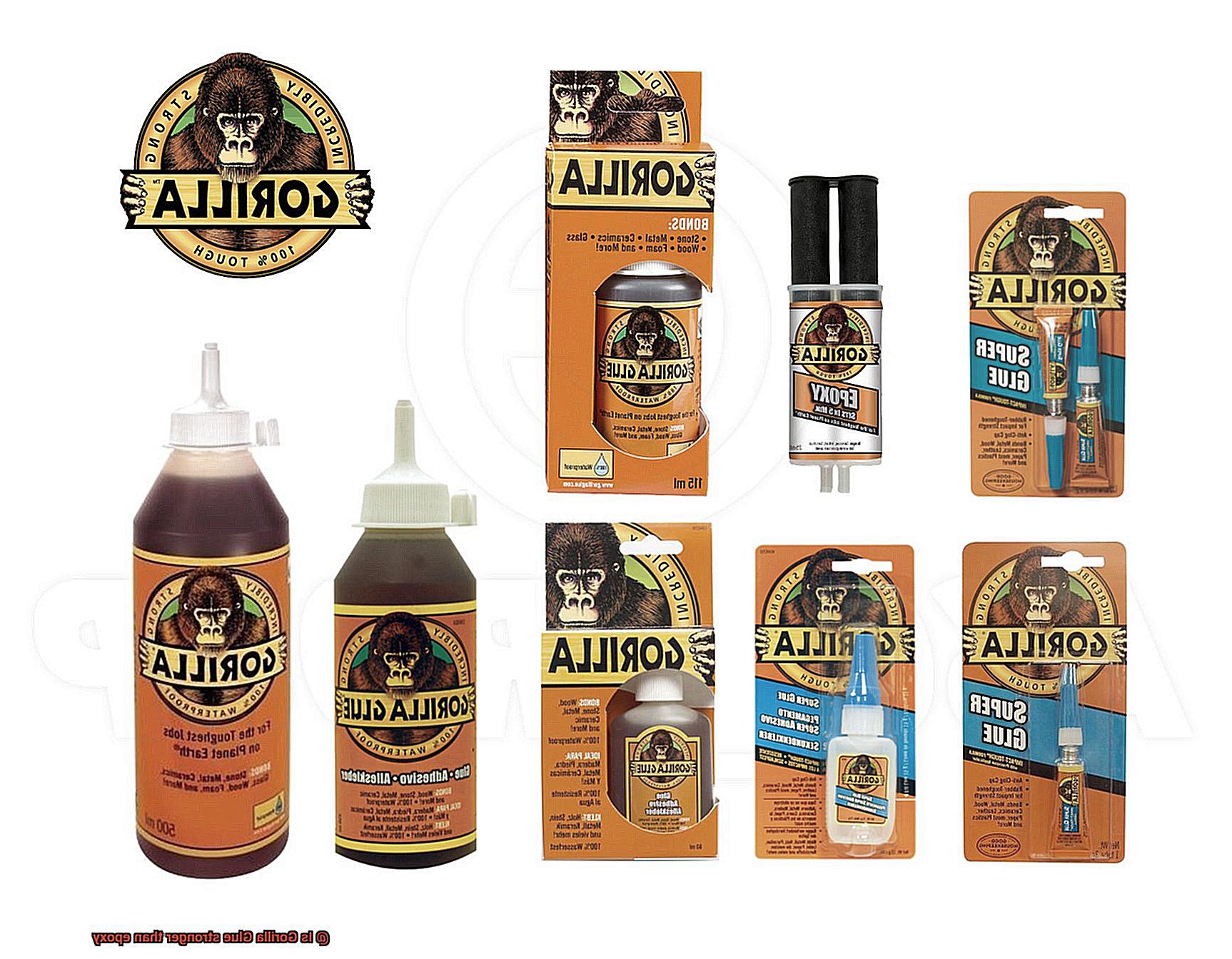
Ultimately, choosing between Gorilla Glue and epoxy will depend on your specific project needs. If you need an adhesive that can withstand heavy weight and pressure or exposure to harsh environments, epoxy may be the better choice. However, if you need an adhesive that can fill gaps and create a tight seal, Gorilla Glue may be the way to go.
A Closer Look at Epoxy
Epoxy is a true wonder adhesive that has been making waves in the construction, woodworking, and industrial sectors. Comprised of two parts – a resin and hardener – it creates a chemical reaction when mixed together that results in an incredibly strong bond.
One of the most notable advantages of epoxy is its ability to bond with almost any material, including metal, wood, concrete, and plastic. This versatile adhesive can even fill gaps and cracks in surfaces, making it a perfect choice for repairing damaged items.
When it comes to strength, epoxy is a real powerhouse. It can withstand heavy loads and stress, making it ideal for high-stress applications. Its excellent resistance to water and chemicals also makes it a popular choice for use in marine and automotive applications.
But epoxy’s benefits don’t stop there. Here are some additional reasons why it’s such a popular choice:
- Epoxy can be used to create coatings that provide protection against wear and tear.
- It can be used to seal surfaces from moisture and other elements.
- It has excellent electrical insulation properties, making it perfect for electrical applications.
Strength Comparison: Gorilla Glue vs. Epoxy
When it comes to deciding which adhesive to use for your project, the strength comparison between Gorilla Glue and epoxy is an important consideration. Epoxy, with its two-component composition of resin and hardener, may be a superhero of adhesives with its ability to bond with almost any material, fill gaps, withstand heavy loads and stress, resist water and chemicals, create coatings for protection against wear and tear, seal surfaces from moisture, and provide excellent electrical insulation properties. However, not all types of epoxies are created equal; the strength of the adhesive depends on the ratio of its two components and the curing time.
In contrast, Gorilla Glue is a polyurethane-based adhesive that reacts with moisture to create a tight seal. Its unique ability to expand as it dries allows it to fill in any gaps and create a strong bond. Gorilla Glue can bond almost anything, even porous surfaces like wood and fabric. Unlike epoxy, Gorilla Glue is easy to apply and requires no mixing.
But let’s compare their strengths. In terms of sheer strength, some types of epoxy may outperform Gorilla Glue. However, when it comes to versatility and ease of use, Gorilla Glue has an advantage. The ability to bond almost anything makes it highly versatile. Plus, Gorilla Glue requires no mixing and is easy to apply. In contrast, epoxy requires precise mixing and can be messy if not applied correctly.
When considering which adhesive to use for your specific project, it’s important to factor in the application surface as well as the type of epoxy being compared. If you need an adhesive that requires precise mixing and curing time for a specific application surface, then epoxy may be your best choice. However, if you’re looking for an adhesive that is versatile, easy to use, and can bond almost anything with minimal hassle, then Gorilla Glue may be your go-to.
Advantages of Using Gorilla Glue
If so, look no further than Gorilla Glue. This polyurethane-based adhesive has quickly become a fan favorite for its incredible strength and versatility. In this article, we’ll explore the many advantages of using Gorilla Glue over other options like epoxy.
First and foremost, one of the major advantages of Gorilla Glue is its water-resistant properties. No matter how wet or humid your environment may be, this adhesive will hold up without losing effectiveness. This feature makes it an ideal choice for outdoor projects or any area where moisture is present. Plus, it won’t deteriorate over time due to exposure to water.
Another huge advantage of Gorilla Glue is its versatility. It can bond a wide range of materials, including wood, metal, ceramic, stone, and plastic. This makes it the ultimate go-to adhesive for a variety of DIY projects where different materials need to be bonded together. Whether you’re working on a wooden birdhouse or repairing a ceramic vase, Gorilla Glue has got you covered.
But perhaps the most impressive advantage of Gorilla Glue is its incredible bonding capabilities. It creates a bond that can withstand high pressure and heavy loads, and can even be used to fill gaps in materials. This makes it an effective adhesive for uneven surfaces or projects that require extra support. When you need an adhesive that won’t let you down, Gorilla Glue is the answer.
And let’s not forget about aesthetics – Gorilla Glue dries clear. This means that it won’t affect the appearance of your project, which is especially important for projects where looks are a top priority. You won’t have to worry about unsightly glue marks ruining your hard work.
Finally, the cherry on top: Gorilla Glue is incredibly easy to use. You don’t need any special tools or equipment – just apply the glue to one surface, clamp the two surfaces together, and let it dry. This convenience saves time and hassle compared to more complicated adhesives like epoxy.
While epoxy is certainly a strong adhesive, it simply can’t match the versatility and ease of use of Gorilla Glue. Epoxy is typically used for specific applications, such as bonding metal or fiberglass, and requires more preparation and mixing before use. When it comes down to it, Gorilla Glue is simply the better choice for most DIY projects.
Advantages of Using Epoxy
When it comes to adhesives, epoxy is the clear choice for those in the know. This two-component adhesive is a favorite among DIY enthusiasts and industry experts alike, thanks to its many advantages over other types of adhesives, including Gorilla Glue.
First and foremost, epoxy is incredibly strong. In fact, it provides a stronger bond than most other types of adhesives. When the resin and hardener components are mixed together, they create a solid polymer that’s tough and resilient. This makes epoxy ideal for bonding materials that require high strength and durability.
But epoxy’s benefits don’t stop there. Another key advantage is its versatility. It can be used to bond a wide range of materials, from metal and wood to plastic, ceramic, and glass. In addition, it’s great for filling gaps and cracks in surfaces, making it perfect for repairing damaged parts.
Epoxy also has excellent resistance to chemicals and moisture. It can withstand exposure to harsh chemicals like acids and solvents without deteriorating or losing its bond strength. And when it comes to moisture, epoxy is no slouch either. It’s highly resistant to water and damp environments, which means you can use it in areas where other adhesives might fail.
But what really sets epoxy apart is its adhesion properties. It adheres tightly to surfaces, creating a strong and durable bond that can withstand stress and strain. Plus, it has good dimensional stability, meaning it won’t shrink or expand significantly over time.
Which Adhesive is Best for Your Project?
Choosing the right adhesive is crucial for ensuring a strong and long-lasting bond. But with so many adhesives on the market, how do you know which one is best for your project? Here are some factors to consider:
- Strength: The adhesive you choose should be strong enough to hold the materials together. Gorilla Glue and epoxy are both known for their exceptional strength.
- Compatibility: Make sure the adhesive will work well with the materials you are using. Gorilla Glue can bond almost any surface, while epoxy can be used on metal, wood, and plastic.
- Ease of use: Consider factors such as drying time and ease of application. Gorilla Glue is quick-drying and easy to apply, while epoxy requires precise mixing of two components.
Safety: Always consider any safety concerns associated with the adhesive you choose.
Now let’s take a closer look at Gorilla Glue and epoxy. Gorilla Glue is a polyurethane-based adhesive that expands as it dries, filling in gaps and creating a strong bond. It’s waterproof and can be used both indoors and outdoors.
However, it can be tricky to work with as it requires dampening one of the surfaces before application. Epoxy, on the other hand, is a two-part adhesive that consists of a resin and hardener. It’s known for its strength and durability, making it ideal for high-stress applications. However, it has a longer drying time than Gorilla Glue and requires precise mixing of two components.
So which one is best for your project? If you’re looking for an adhesive that can bond almost any surface quickly and easily, go for Gorilla Glue. But if you need an adhesive that can withstand extreme stress or outdoor conditions, epoxy is the way to go.
djtKXkTqPUI” >
Also Read: What Is the Best Epoxy Glue?
Conclusion
In summary, it’s a tough call when it comes to deciding whether Gorilla Glue or epoxy is the stronger adhesive. Each has its own unique set of pros and cons that make them ideal for different applications. Gorilla Glue is known for its versatility, quick-drying time, and gap-filling capabilities. It’s also waterproof and can bond almost anything. On the other hand, epoxy is incredibly durable and resistant to chemicals and moisture, making it perfect for high-stress applications.
When choosing between these two adhesives, you’ll want to consider factors such as strength, compatibility with your materials, ease of use, and safety concerns. If you need an adhesive that can bond almost any surface quickly and easily or fill gaps in materials, Gorilla Glue may be the better choice. However, if you’re looking for an adhesive that can withstand extreme stress or outdoor conditions, epoxy might be your go-to option.
Ultimately, it all comes down to your specific project needs. With this comprehensive guide on Gorilla Glue vs. Epoxy at your fingertips, you now have all the information necessary to make an informed decision about which adhesive is best suited for your project.

